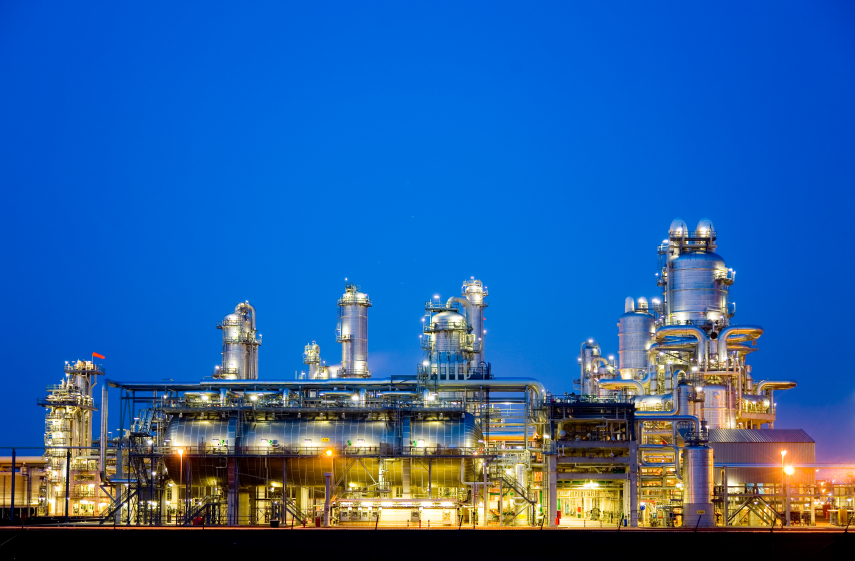
The global refining industry had an unexpectedly strong year in 2023 with strong demand recovery especially in diesel and jet fuel and high crack spreads not seen in many years leaving many refiners with strong balance sheets and optimism about the future. Against this context, we anticipate a far more mixed outlook for the refining industry in 2024.
- Global oil demand will continue to grow in 2024 albeit at a slower pace but will underline the world’s continued reliance on oil especially for transportation and mobility. ADI is forecasting global refinery runs to increase in 2024 by a little over 1%.
- Even so, if not quite peak oil, many regions including Europe and the U.S. will have to continue contending with peak gasoline led not as much by the growing sales of electric vehicles (EVs) but more so due to rising fuel efficiency of automobiles in response to fuel economy mandates. ADI’s long-term models show that even in the most aggressive EV penetration scenarios, automobile fuel efficiency standards account for two-thirds of gasoline demand destruction.
- Average U.S. Gulf Coast refining margins were as high as $17 to $20 per barrel in 2023 but we anticipate them to fall to $12 to $15 this year. While these will still be higher than the average seen over the past few years, refiners will globally have to contend with volatility in crude oil prices and refined product demand. Narrowing price differentials between light and heavy crude oils – only expected to shrink further in 2024 – will compress U.S. Gulf Coast refining margins. The Trans Mountain pipeline expansion cleared a critical regulatory hurdle last week and will be completed in the first half of 2024 tripling crude oil supply from Alberta to the Canadian Pacific Coast. This will further aggravate U.S. Gulf Coast heavy oil costs but will help the West Coast refiners.
- The global refining capacity has caught up mostly with turnarounds and maintenance deferred during the COVID years. As a result, global refining capacity utilization will also be a few percentage points higher in 2024 in comparison to the past year. This will drive product volumes and widen the supply-demand balances impacting gross refining margins.
- The risk of a global recession is receding especially as interest rates are expected to fall in 2024 but an economic slowdown could eliminate the modest growth in refining runs we anticipate this year. Geopolitical conflict that constrains shipping routes (e.g., via the Red Sea from the recent attacks) or raise tanker rates could also impact gross refining margins significantly.

- Refinery divestitures will continue led by the majors such as Shell, BP, and Total as they prepare for the energy transition. In ADI’s due diligence projects on refining assets, national oil companies in Asia and the Middle East have shown a strong interest in acquiring refineries especially in strategic markets and locations. In 2024, we anticipate this interest to continue but valuations will be challenged and even distressed if the assets lack top-tier operational performance.
- Going forward, as refining margins tighten, refiners will have to revisit product-market strategies, operational excellence, and technical leadership to deliver expected shareholder returns. This includes developing appropriate market strategies around renewable diesel and now sustainable aviation fuel, lubricants, and asphalt as well as cost optimization, product upgrading, and asset integration.
- Refiners continue to be highly advantaged in pursuing a broad range of energy transition opportunities with renewable diesel and sustainable aviation fuel being the most likely ones in the near to medium term. Over the next 5-10 years, blue hydrogen and potentially methanol and ammonia projects would also be relevant opportunities for refiners. Within the U.S., ADI’s work is showing the refining independents are particularly well-positioned to exploit the incentives proposed by the Inflation Reduction Act.
- The U.S. Gulf Coast refining infrastructure will continue to be highly advantaged on the global cost curve. This is reflected in the investor activism around leading U.S. refining independents in the past few years. ADI’s multi-client study on refined product exports, published annually since 2020, has highlighted that this will require refiners to relentlessly develop relationships to sustain and grow refined product exports to Latin America and other emerging economies.
- Refiners are not new to regulations, and that pressure will continue and may even intensify both directly and indirectly, e.g., via incentives to EV sales. Governments are implementing stricter regulations on carbon emissions and air pollution, which could increase costs for refiners and potentially force them to close older, less efficient facilities.
The petroleum refining industry is likely to face a complex and dynamic environment in 2024. While there are opportunities for growth, particularly in the short term, the industry needs to adapt to the changing energy landscape and explore new technologies, business models, operational strategies, and product-market plans to ensure its sustained competitiveness.
ADI Analytics is a prestigious, boutique consulting firm specializing in oil & gas, energy transition, and chemicals since 2009. We bring deep, first-rate expertise in a broad range of markets including refining and fuels, where we support Fortune 500, mid-sized and early-stage companies, and investors with consulting services, research reports, and data and analytics, with the goal of delivering actionable outcomes to help our clients achieve tangible results.
We also host the ADI Forum, one of Houston’s distinguished industry conferences, to bring c-suite executives from oil & gas, energy transition, and chemicals together for meaningful dialogue and strategic insights across the value chains.
Subscribe to our newsletter or contact us to learn more.
— Uday Turaga and Edmund Lam



















